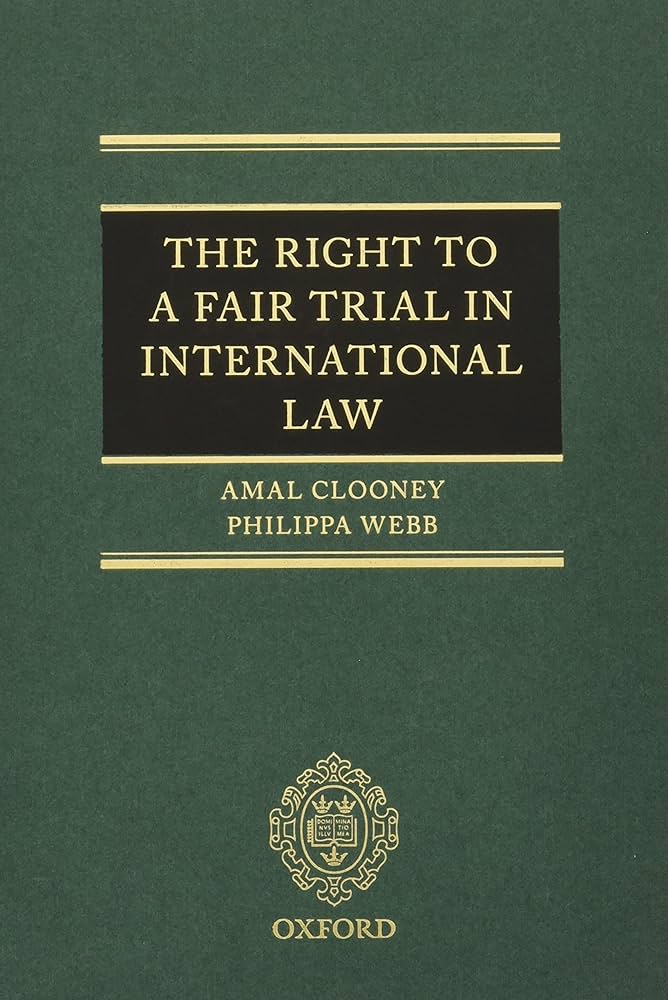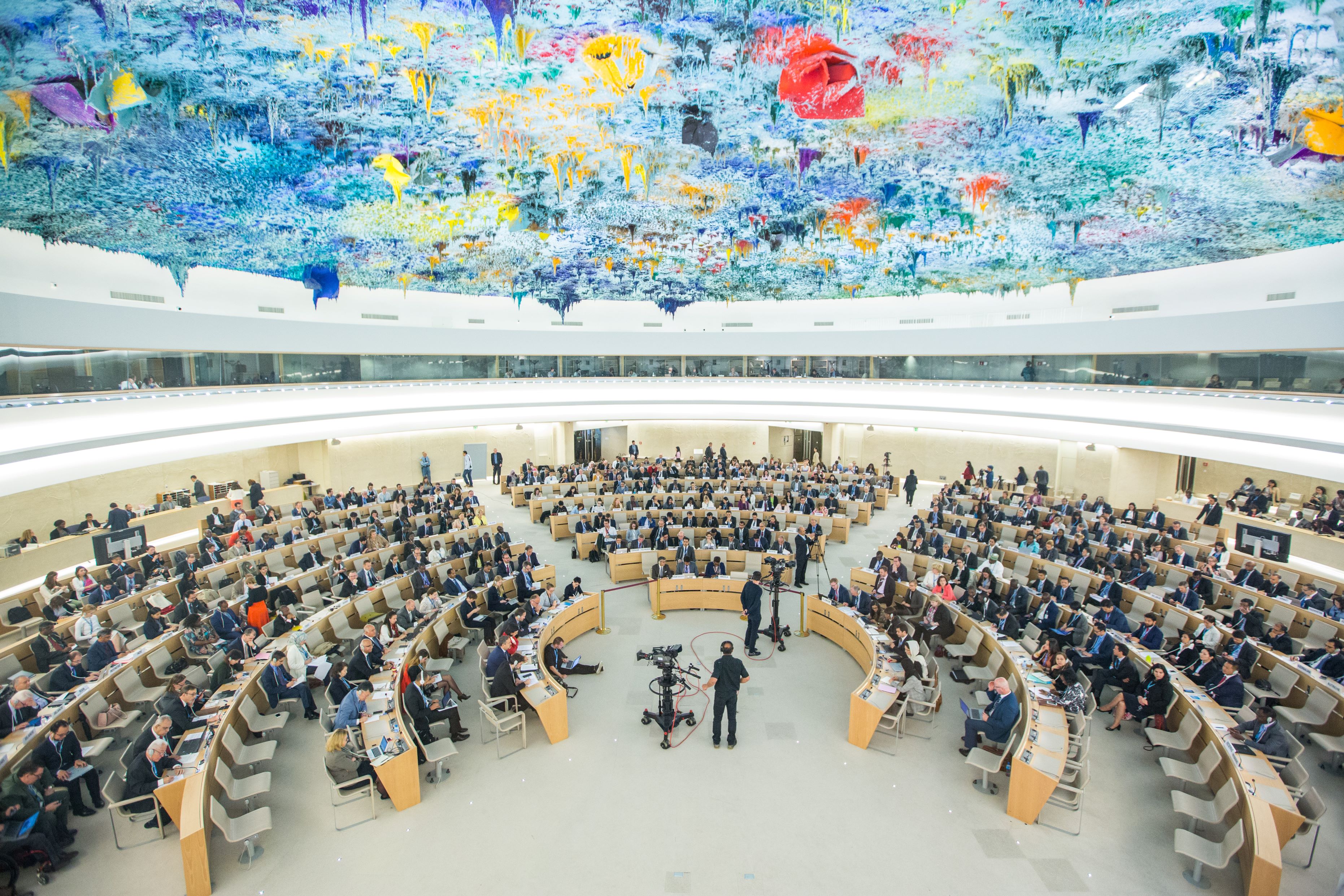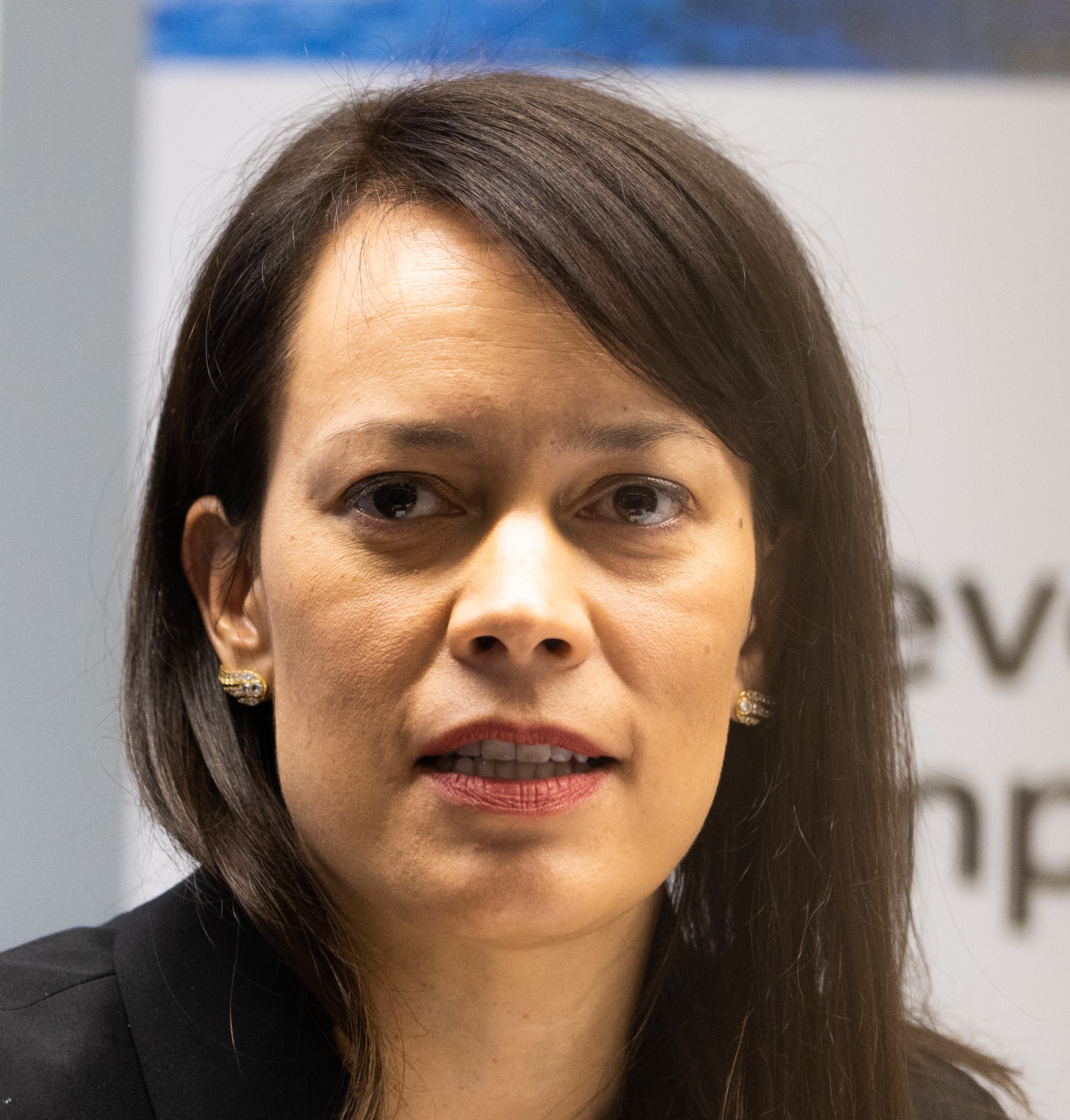The death penalty and scrupulous respect for the right to a fair trial
Posted:
Time to read:
 When a person is facing execution, their right to a fair trial takes on urgent importance. International human rights bodies have recognised this reality in a number of ways. First, by acknowledging that the right to a fair trial interacts with other human rights. Second, by applying a heightened standard of “scrupulous respect” for fair trial rights in death penalty cases. Third, as a result of this heightened standard, international human rights bodies have modified the application of certain components of the right to a fair trial. Fourth, certain types of remedies have been ordered for fair trial violations in death penalty cases. In this post, we examine these four aspects of the right to fair trial in the context of the death penalty.
When a person is facing execution, their right to a fair trial takes on urgent importance. International human rights bodies have recognised this reality in a number of ways. First, by acknowledging that the right to a fair trial interacts with other human rights. Second, by applying a heightened standard of “scrupulous respect” for fair trial rights in death penalty cases. Third, as a result of this heightened standard, international human rights bodies have modified the application of certain components of the right to a fair trial. Fourth, certain types of remedies have been ordered for fair trial violations in death penalty cases. In this post, we examine these four aspects of the right to fair trial in the context of the death penalty.
Interaction with other rights
When a person is charged with a crime that carries the death penalty, it is not only their fair trial rights that are in the frame. Most vividly, their right to life is under threat. In its General Comment No 36 on the Right to Life, the UN Human Rights Committee notes that “[v]iolation of the fair trial guarantees provided for in article 14 of the [International Covenant on Civil and Political Rights] in proceedings resulting in the imposition of the death penalty would render the sentence arbitrary in nature, and in violation of article 6 of the Covenant.”[1]
When a defendant suffers for years on death row, the right to a fair trial combines with the prohibition against torture or other cruel, inhuman or degrading treatment or punishment.[2] The imposition of the death penalty following an unfair trial by a court lacking independence and impartiality will amount to inhuman treatment.[3] In addition, the Human Rights Committee has emphasised that under no circumstances can the death penalty ever be applied as a sanction against conduct whose very criminalization violates the Covenant, including adultery, homosexuality, apostasy, establishing political opposition groups, or offending a head of state.[4]
If the defendant is a juvenile, the rights of the child also apply.[5] UN bodies have stated that individuals who were under the age of 18 at the time the crime was committed may not be sentenced to death, let alone be executed, regardless of their age at the time of trial or sentencing.[6]
Heightened standard of respect
The Human Rights Committee and the UN Economic and Social Council have stated that the respect for fair trial rights in death penalty cases is a heightened standard of “scrupulous respect.”[7] The Inter-American Court of Human Rights has held that “[b]ecause execution of the death penalty is irreversible, the strictest and most rigorous enforcement of judicial guarantees is required of the State so that those guarantees are not violated and a human life not arbitrarily taken as a result.”[8] The Inter-American Commission on Human Rights has developed a “heightened scrutiny” test in such cases.[9]
Modified application of component fair trial rights
The right to a fair trial is not a singular right. It has 13 component parts: right to a competent, independent and impartial tribunal established by law; public trial; presumption of innocence; right to prepare a defence; right to counsel; right to be tried without undue delay; right to be present; right to examine witnesses; right to an interpreter; right to silence; right to appeal; right to equality; and the right not to be subject to double jeopardy. Some of these component rights are modified to provide greater protection to a defendant facing the death penalty.
The right to prepare a defence includes the right to adequate time. The court may be required to order or extend an adjournment, even if it was not requested. For example, the Human Rights Committee reviewed a death penalty case in Guyana in which the defendant’s lawyer was absent on the first day of the trial and requested a two-day adjournment. The Human Rights Committee found a violation of the defendant’s right to have adequate time and facilities for the preparation of his defence considering that it “should have been manifest to the judge in a capital case that counsel’s request for an adjournment of the trial for only two week days, during which he was engaged in another case, was not compatible with the interests of justice, since it did not provide the author with adequate time and facilities to prepare his defence.”[10]
The right to “adequate facilities” is also necessary for preparing a defence. The Inter-American Court found a violation of the right to adequate facilities to prepare a defence when a defendant accused of murder in Barbados could not obtain an evaluation of his mental health during his trial. He was facing the possibility of a mandatory death sentence. The Court emphasised that the defendant’s case was different from “other criminal proceedings in which the State’s passive conduct with regard to the availability of mental health evaluations would be [permissible]” because, among other reasons, the potential death sentence meant that the proceedings required “the most ample and strict observation of due process rights.” The Court therefore concluded that there had been a violation of the defendant’s defence rights.[11]
The right to counsel and the right to appeal are probably the component rights most associated with death penalty proceedings. The Inter-American Court found a violation of the right to counsel when law students were permitted to represent defendants in a death penalty case, given the students’ lack of experience and training, and the impossibility of reversing a death sentence once it is carried out.[12] The European Court of Human Rights considered a case in which a defendant who was the leader of the Kurdistan Workers' Party (PKK) group in Turkey was sentenced to death for crimes against the state. He was imprisoned on an island that had been declared a military zone and his counsel visits were limited by the frequency and departure times of the ferries to the island, resulting in two one-hour visits per week. The European Court found that this violated the right to a fair trial because “the presentation of [the] highly complex charges generated an exceptionally voluminous case file ... [and] the special circumstances of the case did not justify restricting the [defendant] to a rhythm of two one-hour meetings per week with his lawyers in order to prepare for a trial of that magnitude.”[13]
The Court noted that Turkey had not explained why it did not permit the lawyers to visit their client more often or why it failed to provide more adequate means of transport to the prison. Such measures were called for as part of the “diligence” which states must exercise to ensure that the right to a fair trial, including the right to counsel, is respected.[14]
Satisfying the right to appeal in death penalty cases requires effective representation by counsel. The Human Rights Committee has stated that a “denial of legal aid by the court reviewing the death sentence of an indigent convicted person constitutes not only a violation of article 14, paragraph 3(d) [(right to counsel)], but at the same time also of article 14, paragraph 5 [(right to appeal)], as in such cases the denial of legal aid for an appeal effectively precludes an effective review of the conviction and sentence by the higher instance court.”[15]
The right to appeal in these circumstances will also be violated “if defendants are not informed of the intention of their counsel not to put any arguments to the court, thereby depriving them of the opportunity to seek alternative representation, in order that their concerns may be ventilated at the appeal level.”[16] For example, in a case in which defence counsel “on appeal conceded that there was no merit in the appeal,” the Human Rights Committee found a violation of the right to counsel, holding that “the [domestic court] should ascertain whether counsel ha[d] consulted with the accused and informed him accordingly. If not, the [court] must ensure that the accused is so informed and given an opportunity to engage other counsel.”[17]
 Over and above the strict counsel requirements, international human rights law prohibits the execution of any death penalty until the defendant has had “an opportunity to resort to all judicial appeal procedures” and “petitions to all other available non-judicial avenues have been resolved.”[18] The UN Death Penalty Safeguards provide that anyone who has been sentenced to death “shall have the right to appeal to a court of higher jurisdiction, and steps should be taken to ensure that such appeals shall become mandatory.”[19] The African Commission’s Fair Trial Principles contain an almost identical provision.[20] UN bodies and special rapporteurs have called on states that have the death penalty to “allow adequate time for the preparation of appeals to a court of higher jurisdiction and for the completion of appeal proceedings.”[21] The Inter-American Commission has emphasised that there is an “enhanced obligation to ensure that any deprivation of life which may occur through the application of the death penalty is in strict compliance with the right to a timely, effective and accessible appeal.”[22]
Over and above the strict counsel requirements, international human rights law prohibits the execution of any death penalty until the defendant has had “an opportunity to resort to all judicial appeal procedures” and “petitions to all other available non-judicial avenues have been resolved.”[18] The UN Death Penalty Safeguards provide that anyone who has been sentenced to death “shall have the right to appeal to a court of higher jurisdiction, and steps should be taken to ensure that such appeals shall become mandatory.”[19] The African Commission’s Fair Trial Principles contain an almost identical provision.[20] UN bodies and special rapporteurs have called on states that have the death penalty to “allow adequate time for the preparation of appeals to a court of higher jurisdiction and for the completion of appeal proceedings.”[21] The Inter-American Commission has emphasised that there is an “enhanced obligation to ensure that any deprivation of life which may occur through the application of the death penalty is in strict compliance with the right to a timely, effective and accessible appeal.”[22]
In addition to the right to appeal, a defendant sentenced to death has the right “to seek pardon or commutation.”[23] The Human Rights Committee has recommended that “such procedures should be specified in domestic legislation, and they should not afford the families of crime victims a preponderant role in determining whether the death sentence should be carried out.”[24]
The right to be tried without undue delay also applies stringently to defendants facing the death penalty. The Human Rights Committee has stated that “in all cases, and in particular in capital cases, the accused is entitled to trial and appeal proceedings without undue delay.”[25] In one case, a 22-month delay between the defendant’s arrest and trial constituted a violation of the right to be tried without undue delay.[26] Further, if a defendant is on death row after conviction, there may be a violation of the right to be tried without undue delay if the period between sentencing and exhaustion of the final appeal takes too long. The Human Rights Committee found a violation when there was a delay of 51 months between a defendant’s conviction and the dismissal of his appeal. According to the Committee, “a delay of four years and three months in hearing an appeal in a capital case is, barring exceptional circumstances, unreasonably long and incompatible with article 14, paragraph 3 (c), of the Covenant.”[27]
The right to examine witnesses must also be strictly observed. The Human Rights Committee found that, at least in death penalty cases, the right is violated if counsel is absent during the questioning of a witness and the court fails to adjourn the proceedings to give the defendant an opportunity to ensure the presence of his counsel.”[28]
The right to equality before the courts also takes on special urgency in death penalty cases involving people with disabilities. The Inter-American Commission has held that states have “the obligation to have procedures in place to identify those accused or convicted persons who have a mental or intellectual disability” and once there is an indication that a person might have such a disability, the State is obliged “at any time of the proceedings, to address the claim on the merits.”[29]
Remedies for fair trial violations in death penalty cases
Certain remedies may be more appropriate when persons facing the death penalty have suffered fair trial violations. The Economic Community of West Africa States (ECOWAS) Community Court of Justice, for example, has emphasised the importance of release as a remedy in a case involving two people convicted by a military court and held on death row for over 22 years who had their rights to an impartial court and appeal violated.[30]
A fresh trial may also be called for. The Inter-American Court of Human Rights ordered a retrial in a case in which the charge was reclassified from an offence of “aggravated rape” to “murder”, a charge that could lead to the death penalty. The defendant’s right to a prepare a defence had been violated.[31]
International bodies have also often recommended commutation of a death sentence to a prison term in cases in which a death sentence has been imposed following an unfair trial.[32] Commutation, however, does not necessarily fully remedy violations of the right to a fair trial and it may be necessary to order states both to commute or stay the death sentence and to release the defendants,[33] or to consider a further sentence reduction or early release.[34]
Finally, certain international bodies have issued remedies directed at preventing future violations in death penalty cases. For example, the Inter-American Court ordered Barbados to bring its constitution into compliance with the American Convention because a “savings clause” in the constitution prevented domestic courts from declaring a mandatory death sentence to be invalid.[35] The Inter-American Commission has also recommended that the United States “[p]rovide every indigent person accused of a capital offense with the necessary legal representation” and “[e]nsure that legal counsel provided ... in death penalty cases is effective, trained to serve in death penalty cases, and able to thoroughly and diligently investigate all mitigating evidence.”[36]
 |
Philippa Webb is Professor of Public International Law and and co-Director of the Centre for International Governance and Dispute Resolution at King’s College London. She is also a barrister at Twenty Essex. Philippa served as the Special Assistant and Legal Officer to Judge Rosalyn Higgins GBE KC during her Presidency of the International Court of Justice and held positions in the International Criminal Court and United Nations Headquarters. Her publications include: The Right to a Fair Trial in International Law (OUP 2021, with Amal Clooney) with the accompanying travaux préparatoires to Article 14 of the ICCPR (2021). |
 |
Daisy Peterson is a Visiting Lecturer in Public International Law Mooting and Junior Fellow at the Centre for International Governance and Dispute Resolution at King’s College London. |
Photo credit: UN Geneva via Flickr, licensed under Creative Commons CC BY-NC-ND 2.0 DEED.
[1] UN Human Rights Committee, ‘General Comment No 36 on the right to life’ (3 September 2019) UN Doc CCPR/C/GC/36, para 41.
[2] Soering v United Kingdom App. no. 14038/ 88 (European Court of Human Rights, 7 July 1989), para 111.
[3] UN Human Rights Committee, ‘General Comment No 36 on the right to life’ (3 September 2019) UN Doc CCPR/C/GC/36, para 41; UN Human Rights Committee, Larrañaga v Philippines, Comm No 1421/2005 (24 July 2006), para 7.11; Öcalan v Turkey App. No. 46221/99 (ECtHR (GC), 12 March 2003), para 175; Amal Clooney and Philippa Webb, The Right to a Fair Trial in International Law (OUP 2021) 283.
[4] UN Human Rights Committee, ‘General Comment No 36 on the right to life’ (3 September 2019) UN Doc CCPR/C/GC/36, para 36.
[5] See, in particular, UN Convention on the Rights of the Child (adopted 20 November 1989, entered into force 2 September 1990) 1577 UNTS 3 (UNCRC) arts 6, 12(2), 37, 40.
[6] UNGA Res 63/241 on the rights of the child (24 December 2008) UN Doc A/RES/63/241, para 43(a); UN Human Rights Council Res 10/2 on human rights in the administration of justice, in particular juvenile justice (9 November 2009) UN Doc A/HRC/10/29, para 11; UN Human Rights Committee, Johnson v Jamaica, Comm No 592/1994 (25 November 1998), paras 10.3–10.4. See also UNCRC, art 27.
[7] UN Human Rights Committee, ‘General Comment No 32 on the right to equality before courts and tribunals and to a fair trial’ (23 August 2007) UN Doc CCPR/C/GC/32, para 59;
UN Human Rights Committee, Kelly v Jamaica, Comm No 253/1987 (8 April 1991), paras 5.9–5.10. See also UN Economic and Social Council (ECOSOC), ‘Safeguards Guaranteeing Protection of the Rights of Those Facing the Death Penalty’ (1984) UN Doc E/RES/1984/50, Annex, para 5.
[8] The Right to Information on Consular Assistance in the Framework of the Guarantees of the Due Process of Law, Advisory Opinion OC-16/99, Inter-American Court of Human Rights Series A No 16 (1 October 1999), para 136.
[9] Medellín v United States, Inter-American Commission on Human Rights, Case 12.644 (7 August 2009), para 122.
[10] UN Human Rights Committee, Chan v Guyana, Comm No 913/2000 (31 October 2005), para 6.3 (also finding a violation of his right to counsel); see also Clooney and Webb, 283.
[11] DaCosta Cadogan v Barbados, Inter-American Court of Human Rights, Series C No 204 (24 September 2009), para 77; see also Clooney and Webb, 303.
[12] Girón v Guatemala, Inter-American Court of Human Rights, Series C No 390 (15 October 2019), paras 108– 111; see also Clooney and Webb, 334.
[13] Öcalan v Turkey App. No. 46221/99 (ECtHR (GC), 12 March 2003), para 155.
[14] ibid; see also Clooney and Webb, 362.
[15] UN Human Rights Committee, ‘General Comment No 32 on the right to equality before courts and tribunals and to a fair trial’ (23 August 2007) UN Doc CCPR/C/GC/32, para 51; Clooney and Webb, 672.
[16] UN Human Rights Committee, ‘General Comment No 32 on the right to equality before courts and tribunals and to a fair trial’ (23 August 2007) UN Doc CCPR/C/GC/32, para 51; UN Human Rights Committee, Sookal v Trinidad and Tobago, Comm No 928/2000 (25 October 2001), para 4.10, finding violation of art 14(3)(d); UN Human Rights Committee, Gallimore v Jamaica, Comm No 680/1996 (16 September 1999), para 7.4, finding violation of art 14(5); UN Human Rights Committee, Smith v Jamaica, Comm No 668/1995 (12 May 1999), para 7.3, finding violation of arts 14(5), 14(3)(d); UN Human Rights Committee, Daley v Jamaica, Comm No 750/1997 (3 August 1998), para 7.5, finding violation of art 14(3)(d); Clooney and Webb, 672-3.
[17] UN Human Rights Committee, Graham v Jamaica, Comm No 461/1991 (25 March 1996), para 10.5;
Clooney and Webb, 672-3.
[18] UN Human Rights Committee, ‘General Comment No 36 on the right to life’ (3 September 2019) UN Doc CCPR/C/GC/36, paras 5, 46; Clooney and Webb, 672-3.
[19] See Clooney and Webb, 672.
[20] See N(10)(b) of the Principles and Guidelines; Clooney and Webb, 672.
[21] UN Economic and Social Council (ECOSOC), ‘Safeguards Guaranteeing Protection of the Rights of Those Facing the Death Penalty’ (1984) UN Doc E/RES/1984/50, Annex, para 5; UN Economic and Social Council, ‘Report of the Special Rapporteur on extrajudicial, summary or arbitrary executions’ (27 February 1996) UN Doc E/CN.4/1996/4/Add.2; UN Economic and Social Council, ‘Report of the Special Rapporteur on extrajudicial, summary or arbitrary executions’ (23 December 1997) UN Doc E/CN.4/1998/68; Clooney and Webb, 672.
[22] Teleguz v United States, Inter-American Commission on Human Rights, Case 12.864 (15 July 2013), para 106; Clooney and Webb, 701.
[23] International Covenant on Civil and Political Rights (adopted 16 December 1966, entered into force 23 March 1976) 999 UNTS 171 (ICCPR), art 6(4); UN Human Rights Committee, ‘General Comment No 36 on the right to life’ (3 September 2019) UN Doc CCPR/C/GC/36, paras 37, 47; Clooney and Webb, 673.
[24] UN Human Rights Committee, ‘General Comment No 36 on the right to life’ (3 September 2019) UN Doc CCPR/C/GC/36, para 47; Clooney and Webb, 673.
[25] UN Human Rights Committee, Kelly v Jamaica, Comm No 253/1987 (8 April 1991), para 5.12; Clooney and Webb, 423.
[26] ibid.
[27] UN Human Rights Committee, Johnson v Jamaica, Comm No 588/1994 (22 March 1996), para 8.8; Clooney and Webb, 423.
[28] UN Human Rights Committee, Hendricks v Guyana, Comm No 838/1998 (28 October 2002), para 6.4;
UN Human Rights Committee, Simpson v Jamaica, Comm No 695/1996 (31 October 2001), para7.3; Clooney and Webb, 504.
[29] Tamayo Arias v United States, Inter-American Commission on Human Rights, Case 12.873 (17 July 2014), para 165. See also Saldaño v United States, Inter-American Commission on Human Rights, Case 12.254 (18 March 2017), paras 143, 227–231; Abdur’ Rahman v United States, Inter-American Commission on Human Rights, Case 12.422 (2 April 2014), para 76; Lackey v United States, Inter-American Commission on Human Rights, Cases 11.575 & others (15 July 2013), paras 206–220; Clooney and Webb, 736.
[30] Inyang v Nigeria, Community Court of Justice (CCJ) of the Economic Community of West African States (ECOWAS), Suit No ECW/CCJ/APP/03/18 (29 June 2018), paras 6.3.22-6.3.27, 8; Clooney and Webb, 860.
[31] Ramirez v Guatemala, Inter-American Court of Human Rights, Series C No 126 (20 June 2005), para 76; Clooney and Webb, 871.
[32] UN Human Rights Committee, Taylor v Jamaica, Comm No 705/1996 (2 April 1998), para 9; UN Human Rights Committee, Paul v Guyana, Comm No 728/1996 (1 November 2001), para 11; UN Working Group on Arbitrary Detention, Ayub Masih v Pakistan, Opinion No 25/2001 (30 November 2001), para 21; DaCosta Cadogan v Barbados, Inter-American Court of Human Rights, Series C No 204 (24 September 2009), para 128; Garza v United States, Inter-American Commission on Human Rights, Case 12.243 (4 April 2001), para 121; Clooney and Webb, 874.
[33] Egyptian Initiative for Personal Rights and Interights v Egypt, African Commission on Human and Peoples’ Rights, Comm No 334/06 (23 February-03 March 2011) para 233; UN Human Rights Committee, Thomas v Jamaica, Comm No 532/1993 (3 November 1997), para 8.
[34] UN Human Rights Committee, Sirageva v Uzbekistan, Comm No 907/2000 (1 November 2005), para 8; Clooney and Webb, 874.
[35] DaCosta Cadogan v Barbados, Inter-American Court on Human Rights, Series C No 204 (24 September 2009), para 105; Boyce v Barbados, Series C No 169 (20 November 2007), para 127(c); Copello Castillo v Cuba, Inter-American Commission on Human Rights, Case 12.477 (21 October 2006), para 114; Clooney and Webb, 892.
[36] Lackey v United States, Inter-American Commission on Human Rights, Case 11.575 (15 July 2013), paras 196–205, 251; Rocha Diaz v United States, Inter-American Commission on Human Rights, Case 12.833 (23 March 2015), para 107(5); Clooney and Webb, 893.
Share:
